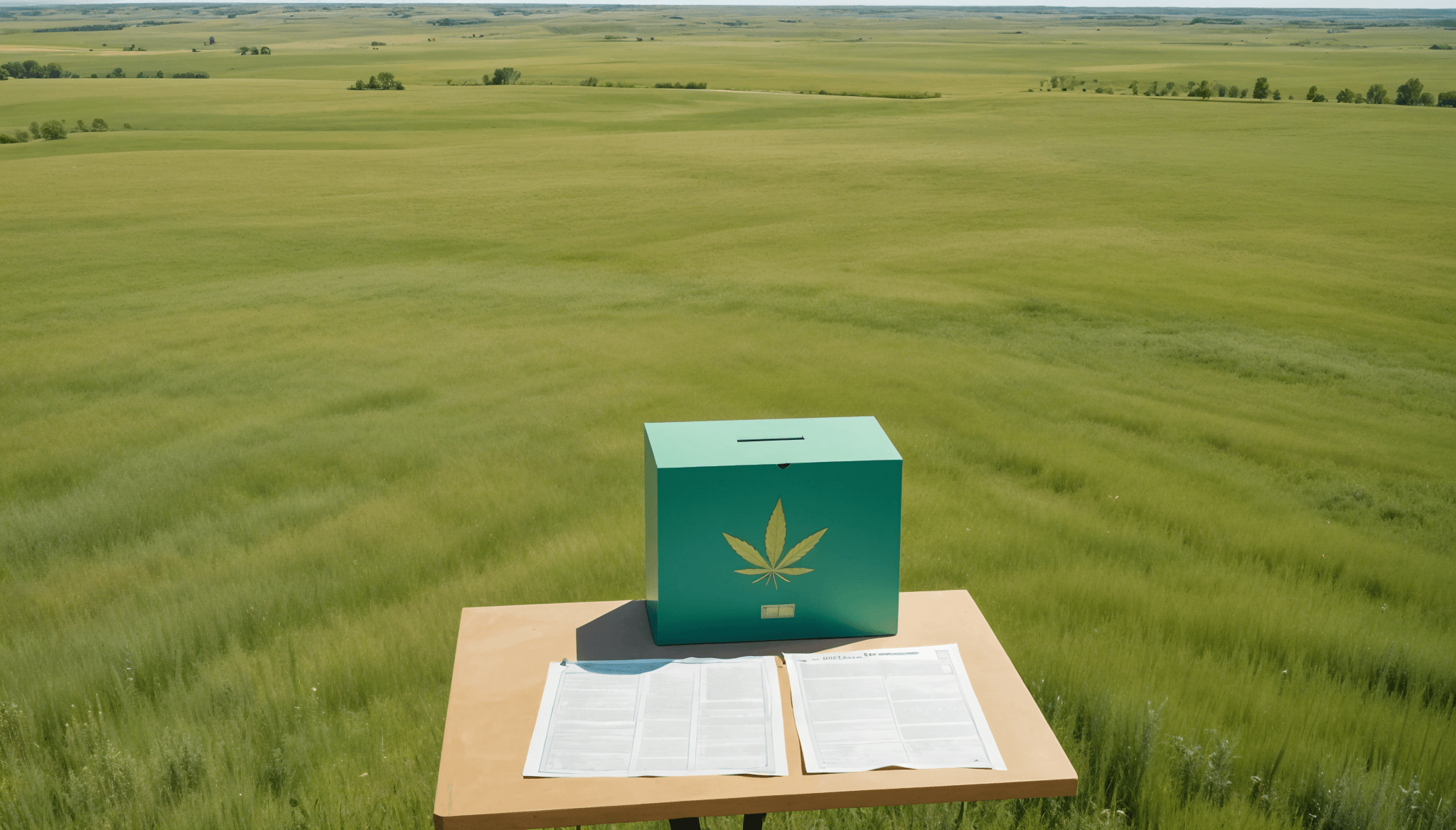The State of North Dakota is once again at a crossroads regarding the legalization of adult-use cannabis. As the November election approaches, voters will have the opportunity to decide whether to permit the personal use, possession, and cultivation of cannabis by adults aged 21 and older. This marks another significant chapter in the state’s ongoing debate over cannabis regulation.
Historical context: Medical versus recreational cannabis
In 2016, North Dakota voters approved a measure to legalize medical cannabis. This decision allowed patients with qualifying conditions to obtain and use marijuana for therapeutic purposes, ushering in a new era of regulated medical cannabis within the state. The initiative underscored a growing acceptance of cannabis’ medical potential among residents.
Previous attempts at adult-use legalization
Despite the success of medical cannabis, efforts to extend legalization to recreational use have been met with resistance. In 2018, a ballot measure to legalize adult-use cannabis was rejected by 59% of voters. A subsequent proposal in 2022 faced a similar fate, with 55% opposing the initiative. Critics argue that the proposal’s repeated rejections indicate a clear stance by North Dakotans against adult-use legalization.
The current landscape: Arguments for and against legalization
Supporters of the new ballot initiative argue that legalizing adult-use cannabis could yield numerous benefits. Burleigh County Commissioner Steve Bakken contends that legalization would free up law enforcement resources, allowing police to focus on more pressing issues like fentanyl and the opioid epidemic. Advocates also highlight potential economic gains through taxation and job creation within the cannabis industry.
Opponents’ viewpoint
Despite these arguments, opposition groups remain vocal. Patrick Finken, chair of the Brighter Future Alliance, maintains that previous rejections reflect a consistent public sentiment against recreational marijuana. Opponents often cite concerns about increased substance abuse, impaired driving, and negative impacts on community health as pivotal reasons for rejecting legalization.
The stakes for North Dakota: What’s at risk?
If voters approve the initiative, it could significantly impact public safety protocols within the state. Proponents believe that reallocating police resources from marijuana offenses to more critical issues could enhance overall community safety. Conversely, opponents fear that an increase in cannabis availability might exacerbate problems such as impaired driving and youth access to cannabis.
Economic consequences
The legalization of adult-use cannabis offers potential economic advantages. Taxes derived from cannabis sales could provide substantial revenue streams for state and local governments, funding various public projects and services. A legalized market could also spur job creation across multiple sectors, from agriculture to retail.
Social considerations
Legalization carries significant social ramifications, including altering societal attitudes toward cannabis consumption. If the initiative passes, it could signal a shift toward broader acceptance and normalization of cannabis use. However, some worry that this shift could lead to higher rates of dependency and misuse, particularly among vulnerable populations.
The road ahead: Making an informed decision
As election day nears, North Dakota residents must engage deeply with the issue. Understanding the potential positive and negative impacts will be essential for making an informed decision. Community discussions, debates, and educational campaigns can help provide comprehensive insights into the complexities of cannabis legalization.
Looking beyond the vote
Regardless of the outcome, the November vote will likely influence future legislative actions and public policy directions concerning cannabis in North Dakota. Should the initiative pass, the state must develop robust regulatory frameworks to manage the new market effectively. Alternatively, if rejected, the debate over cannabis legalization may continue to evolve, potentially shaping future proposals and public opinion.
North Dakota stands at a pivotal moment in its cannabis policy journey. With both sides presenting compelling arguments, the upcoming vote encompasses legal and economic dimensions and profound social and public health considerations. North Dakotans are tasked with considering these multifaceted aspects as they vote on this critical issue.





